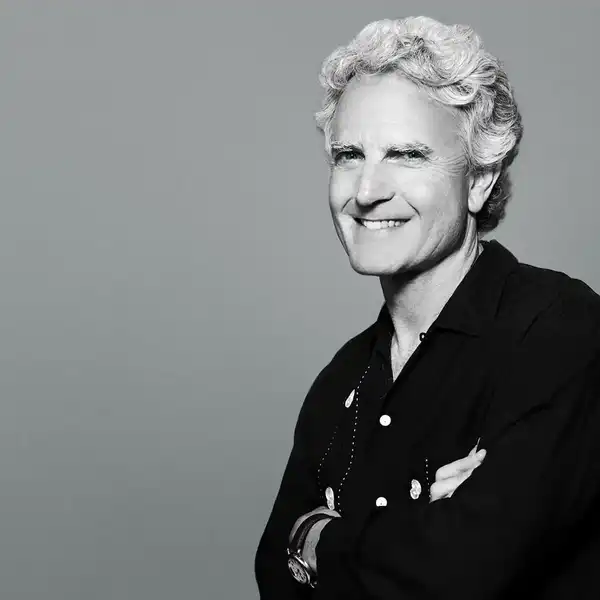Steve Albini, Legendary Engineer/Producer of Nirvana, Pixies Albums, Dies at 61
The beloved, dogmatic music purist suffered a fatal heart attack on Tuesday (May 7).

Steve Albini in the 'A' control room of his studio, Electrical Audio, Chicago, Illinois, June 24, 2005.
Steve Albini, the legendarily exacting producer/engineer and frontman of the noisesome indie rock bands Shellac and Big Black has died at 61. According to a staff member at Albini’s Electric Audio Recordings studio in Chicago, Albini died of a heart attack on Tuesday night (May 7).
Though he disdained the term “producer,” preferring “engineer” instead, Albini said in a 2018 interview that worked on more than 2,000 albums, mostly for underground or indie bands, but also notably on projects by two of the most important and influential bands of the late 1980s and early 1990s.
In addition to recording Nirvana’s final full studio album, 1993’s In Utero, he also worked on the beloved 1988 album Surfer Rosa by one of late Nirvana singer Kurt Cobain’s favorite bands, the Pixies. Constantly toggling between albums by A-list major label acts (PJ Harvey’s lashing 1993 album Rid of Me, Bush’s Razorblade Suitcase) and beloved indie bands from his native Chicago (Urge Overkill, The Jesus Lizard, Tar), Albini was also a prolific musicians in his own right with a series of hardcore and noise bands, including Big Black, Rapeman and Shellac.
Born in Pasadena, Calif. on July 22, 1962, Albini positioned himself as a staunch outsider in the mainstream music industry, which he considered exploitative, refusing to accept the traditional producer royalties for any of the albums he recorded at his Chicago studio.
Punk rock in the oldest sense of the word — anti-authoritarian, not at all afraid to offend (see the above-noted name of one of his bands, which he later said was a “flippant” choice that was indefensible), proudly pugnacious and principled to a fault — Albini made righteous, ear-stabbing noise with his groups, but also eschewed the traditional trappings of the music industry on purpose. Big Black never had a manager, booked their own tours and broke up on the eve of their second album’s release.
Cobain was adamant about wanting to record with Albini for his band’s second major-label album because of the stripped-down, raw sound he famously captured on his earlier productions. For a while, though, he was equally well-known for his often eviscerating, rude broadsides against what he saw as phonies in the industry, including an infamous letter to Chicago Reader critic Bill Wyman in 1994 in which he labeled the Smashing Pumpkins “ultimately insignificant” and Liz Phair a “f–king chore to listen to” in a column titled “Three Pandering Sluts and their Music-Press Stooge.”
As noted in a 2023 Guardian profile, Albini reveled in eye poking, sometimes performing the Big Black song “Jordan Minnesota” about a purported child-sex ring in that town while pretending to be one of the victims being assaulted. He also briefly fronted a band called “Run N—er Run,” who released a 1985 single entitled “Pray I Don’t Kill You Faggot,” a song the provocateur told the paper he was embarrassed by, saying “I don’t expect any grace from anybody about that.”
Despite sometimes lashing out at bands he’d previously worked with — including once describing the Pixies as “four cows more anxious to be led around by their nose rings” — Albini’s indie bona fides and no BS nature kept him busy working on albums by a who’s who of underground 1990s acts from Jawbreaker to Silkworm, Brise-Glace, Killdozer, Gastr del Sol, Smog, Pansy Division and Low, among many others.
His early 2000s output was equally impressive, recording dozens of albums and singles by the likes of Jon Spencer Blues Explosion, Man or Astro-Man?, Zeni Geva, Robbie Fulks, Mogwai, Flogging Molly, The Breeders, Godspeed You! Black Emperor, Cheap Trick, Gogol Bordello, Joanna Newsome, The Stooges, Manic Street Preachers and many more.
Shellac were poised to release their first album in a decade, To All Trains, next week, and had booked a series of shows in England in June, followed by a run of U.S. dates in Chicago, New York and Los Angeles in July.
Often working on dozens of albums per year, Albini kept up his torrid pace recently, re-teaming with frequent collaborator folk singer Nina Nastasia in 2022, as well as working on albums by Black Midi, Spare Snare, Liturgy and Code Orange over the past two years.
















